Life
Sign up for our newsletter
We summarize the week's scientific breakthroughs every Thursday.
-
 Life
LifeNatural antifreeze prevents frogsicles
Sugar and other chemicals keep Alaskan frogs from freezing completely.
By Meghan Rosen -
 Animals
AnimalsFor sheep horns, bigger is not better
Trade-offs between studliness and survival keep less endowed sheep in the mix.
-
 Life
LifeBacteria can cause pain on their own
Microbes caused discomfort in mice by activating nerves, not the immune system.
-
 Animals
AnimalsBirds know road speed limits
Crows, house sparrows and other species judge when to flee the asphalt by average traffic rates rather than an oncoming car's speed.
By Susan Milius -
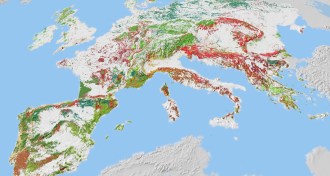 Ecosystems
EcosystemsAging European forests full to the brim with carbon
Trees' capacity to sequester carbon dioxide from the atmosphere is dwindling.
By Meghan Rosen -
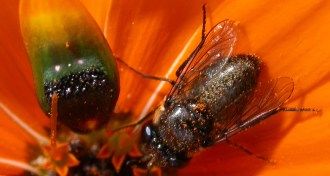 Plants
PlantsDastardly daisies
This flower isn’t just any old sex cheat. It can be sexually deceptive three ways and in 3-D.
By Susan Milius -
 Life
LifeYears or decades later, flu exposure still prompts immunity
New forms of influenza viruses can spur production of antibodies to past pandemics in people who lived through them.
-
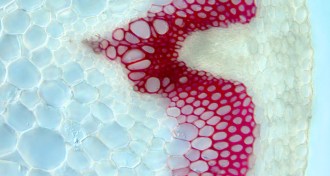 Life
LifeTo make biofuel, cut the lignin
Researchers disable key protein making plant sugars easier to access.
By Meghan Rosen -
 Health & Medicine
Health & MedicineGut-brain communication failure may spur overeating
Restoring a depleted molecule in obese mice repaired their abnormal response to food.
-

-
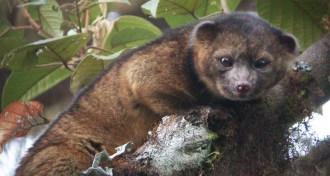
-
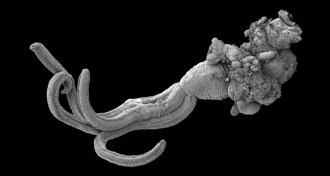 Animals
AnimalsAntarctic waters may shelter wrecks from shipworms
Ocean currents and polar front form 'moat' that keeps destructive mollusks at bay.
By Susan Milius